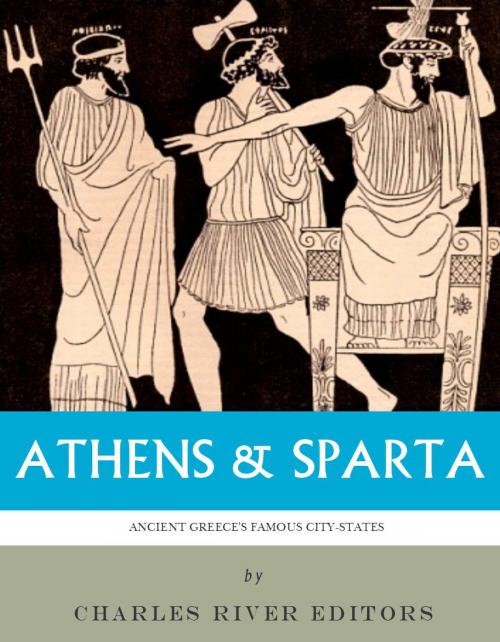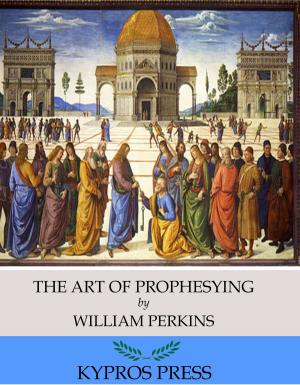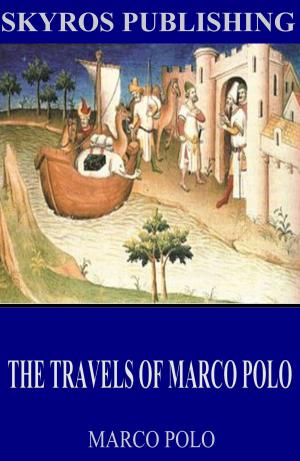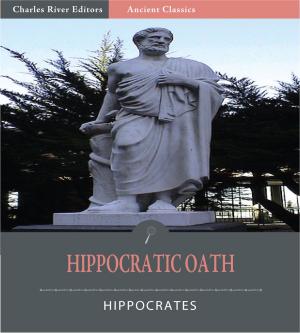Athens & Sparta: Ancient Greeces Famous City-States
Nonfiction, History, Ancient History, Greece, Civilization| Author: | Charles River Editors | ISBN: | 9781475320145 |
| Publisher: | Charles River Editors | Publication: | December 5, 2012 |
| Imprint: | Language: | English |
| Author: | Charles River Editors |
| ISBN: | 9781475320145 |
| Publisher: | Charles River Editors |
| Publication: | December 5, 2012 |
| Imprint: | |
| Language: | English |
*Explains how Athens and Sparta mastered warfare on land and sea, including the use of hoplites and triremes. *Discusses the lives and legacies of famous Athenians and Spartans, including Leonidas, Lycurgus, Plato, Pericles, and more. *Includes Pericles' Funeral Oration from the Peloponnesian War. *Explains the political systems used by Athens and Sparta and their unique cultures.*Includes pictures of Athens and Sparta, as well as depictions of important people, places, and events. *Includes a Bibliography for further reading.*Includes a Table of Contents. The walls of Sparta were its young men, and its borders the points of their spears. attributed to King AgesilaosFor 2500 years, the Ancient Greeks have fascinated the West, who look to Greece as the creators of Western culture. Indeed, the Greeks revolutionized warfare, art, architecture, government, philosophy, and more. Of all the Greeks' accomplishments, many can be credited to the two most famous city-states of all: Athens and Sparta.The most unique city-state in Ancient Greece was Sparta, which continues to fascinate contemporaneous society. It is not entirely clear why Sparta placed such a great emphasis on having a militaristic society, but the result was that military fitness was a preoccupation from birth. If a Spartan baby did not appear physically fit at birth, it was left to die. Spartan children underwent military training around the age of 7 years old, and every male had to join the army around the age of 18. The Spartans, whose carefully constructed approach to warfare and there is no other word for it Spartan way of life, earned the grudging admiration of all of Greece and succeeded in establishing themselves in the years following the reforms of the semi-legendary ruler Lycurgus as the greatest military force in all of Hellas. Athens might have the mightiest fleet and the greatest cadre of philosophers and dramatists, Thessaly might have had the most vaunted cavalry, and the great city-states of Argos, Thebes and Corinth all had their own claims to fame, but on the battlefield the Spartan phalanx stood without peer. Athens was a military force in its own right, but it's chiefly remembered for its political system, which would in time form the nucleus of all Western democratic systems of government, and the remarkable number of outstanding individuals who lived and flourished in the enlightened city-state. The Ancient Athenians formed the backbone of the Wests entire culture, from the arts to philosophy and everything inbetween. In the field of medicine, the great physician Hippocrates not only advanced the practical knowledge of human anatomy and care-giving but changed the entire face of the medical profession. The great philosophers of Athens revolutionized the way men thought about reason, logic, rhetoric, politics, and good and evil. Great architects and sculptors such as Phidias produced works of art of such breathtaking realism and startling dynamism that they later formed the driving force behind the resurgence of sculpture during the Renaissance. And this does not take into account the host of equally brilliant mathematicians, natural philosophers, historians, astronomers and politicians that the citys great schools nurtured and produced.Athens & Sparta comprehensively covers the history and culture of the famous Greek city-states, looking at their cultural, political, and military past, and examining all their accomplishments. You will learn about Athens and Sparta like you never have before.
*Explains how Athens and Sparta mastered warfare on land and sea, including the use of hoplites and triremes. *Discusses the lives and legacies of famous Athenians and Spartans, including Leonidas, Lycurgus, Plato, Pericles, and more. *Includes Pericles' Funeral Oration from the Peloponnesian War. *Explains the political systems used by Athens and Sparta and their unique cultures.*Includes pictures of Athens and Sparta, as well as depictions of important people, places, and events. *Includes a Bibliography for further reading.*Includes a Table of Contents. The walls of Sparta were its young men, and its borders the points of their spears. attributed to King AgesilaosFor 2500 years, the Ancient Greeks have fascinated the West, who look to Greece as the creators of Western culture. Indeed, the Greeks revolutionized warfare, art, architecture, government, philosophy, and more. Of all the Greeks' accomplishments, many can be credited to the two most famous city-states of all: Athens and Sparta.The most unique city-state in Ancient Greece was Sparta, which continues to fascinate contemporaneous society. It is not entirely clear why Sparta placed such a great emphasis on having a militaristic society, but the result was that military fitness was a preoccupation from birth. If a Spartan baby did not appear physically fit at birth, it was left to die. Spartan children underwent military training around the age of 7 years old, and every male had to join the army around the age of 18. The Spartans, whose carefully constructed approach to warfare and there is no other word for it Spartan way of life, earned the grudging admiration of all of Greece and succeeded in establishing themselves in the years following the reforms of the semi-legendary ruler Lycurgus as the greatest military force in all of Hellas. Athens might have the mightiest fleet and the greatest cadre of philosophers and dramatists, Thessaly might have had the most vaunted cavalry, and the great city-states of Argos, Thebes and Corinth all had their own claims to fame, but on the battlefield the Spartan phalanx stood without peer. Athens was a military force in its own right, but it's chiefly remembered for its political system, which would in time form the nucleus of all Western democratic systems of government, and the remarkable number of outstanding individuals who lived and flourished in the enlightened city-state. The Ancient Athenians formed the backbone of the Wests entire culture, from the arts to philosophy and everything inbetween. In the field of medicine, the great physician Hippocrates not only advanced the practical knowledge of human anatomy and care-giving but changed the entire face of the medical profession. The great philosophers of Athens revolutionized the way men thought about reason, logic, rhetoric, politics, and good and evil. Great architects and sculptors such as Phidias produced works of art of such breathtaking realism and startling dynamism that they later formed the driving force behind the resurgence of sculpture during the Renaissance. And this does not take into account the host of equally brilliant mathematicians, natural philosophers, historians, astronomers and politicians that the citys great schools nurtured and produced.Athens & Sparta comprehensively covers the history and culture of the famous Greek city-states, looking at their cultural, political, and military past, and examining all their accomplishments. You will learn about Athens and Sparta like you never have before.















